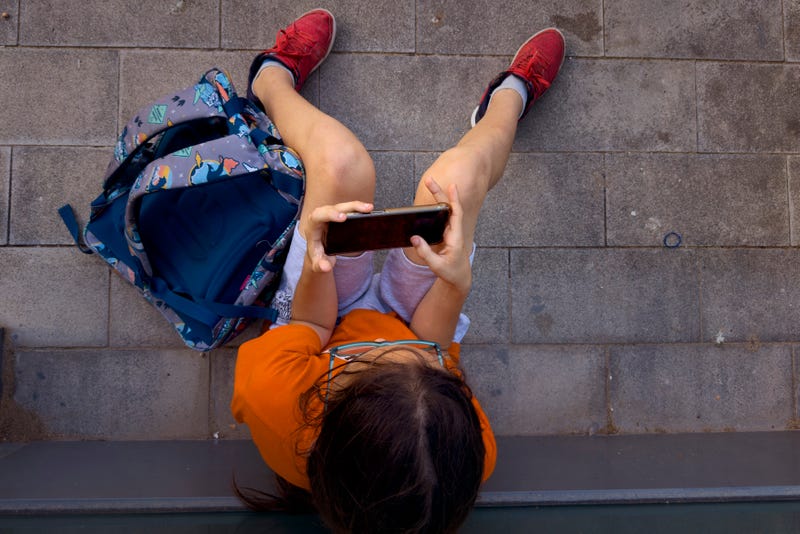
Sweden says children under the age of 2 should not be exposed to any digital screens. The recommendations, issued by the Scandinavian country’s public health agency earlier this month as a new school year begins, are the latest in a worldwide effort to limit screen time for young children. The coronavirus lockdowns exacerbated the problem as schools turned to Zoom for distance-learning and parents relied on TV shows and movies to keep their children occupied while they worked from home.
What does Sweden say?
Sweden suggests that toddlers should not have any exposure to digital screens, including television. The recommendations ease slightly as the children age: From 2 to 5 years old, they should have a maximum of one hour a day in front of a screen, while for youngsters aged 6 to 12 it's two hours. Teenagers should have no more than three hours of screen time a day.
Sweden's suggestions came after research found that children reported negative effects like poorer sleep, depression and limited physical activity with high use of digital devices.
What other countries are doing this?
Similar recommendations have come out of other countries as well, including the United States, Ireland, Canada, Australia and France.
France has the strictest suggestions so far, saying children under 3 should not have any time in front of screens. The recommendation comes from a report published in April that was commissioned by President Emmanuel Macron.
Ireland and the U.S. say babies and toddlers can engage in video calls with family and friends — though Canada, Australia and Sweden do not make such distinctions.
What about cellphone bans in U.S. classrooms?
Cellphone bans are already in place at many schools across the United States. Cellphone pouches, lockers and bins have grown in popularity to help carry out the prohibitions.
But the bans aren’t always enforced, and students often find ways to bend the rules, like hiding phones on their laps. Some parents have expressed concerns that bans could cut them off from their kids if there is an emergency, such as a school shooting.
But while the bans are gaining traction, many experts say they’re not enough. They argue for alternative stimulation: steering students outdoors or toward extracurricular activities to fill time they might otherwise spend alone online. And students need outlets, they say, to speak about taboo topics without fear of being “ canceled ” on social media.
Why does it matter?
A 2023 UNESCO report says while digital technology can augment education — through new learning environments and expanded connections and collaboration — it comes at a cost to socialization and real-life learning. Negative effects on physical and mental health also play a role.
The report additionally noted insufficient regulations around unauthorized use of personal data for commercial purposes, as well as the spread of misinformation and hate speech online.
“Such challenges may cancel out any benefits,” the UNESCO authors wrote.
And a study published last year in JAMA Pediatrics researched a potential link between screen time for young children and developmental delays.
“In this study, greater screen time for children aged 1 year was associated with developmental delays in communication and problem-solving at ages 2 and 4 years,” the study said.
What about the tech industry and social media?
Policymakers and children’s advocates are growing increasingly concerned with teens’ relationships with their phones and social media.
Last fall, dozens of U.S. states, including California and New York, sued Instagram and Facebook owner Meta Platforms Inc. for harming young people and contributing to the youth mental health crisis by knowingly and deliberately designing features that addict children.
In January, the CEOs of Meta, TikTok, X and other social media companies went before the Senate Judiciary Committee to testify about their platforms’ harms to young people.
Now Sweden's public health agency has called for tech companies to change their algorithms so children do not get stuck doom-scrolling for hours or watching harmful content.
A 2023 UNESCO report says while digital technology can augment education — through new learning environments and expanded connections and collaboration — it comes at a cost to socialization and real-life learning. Negative effects on physical and mental health also play a role.
The report additionally noted insufficient regulations around unauthorized use of personal data for commercial purposes, as well as the spread of misinformation and hate speech online.
“Such challenges may cancel out any benefits,” the UNESCO authors wrote.
And a study published last year in JAMA Pediatrics researched a potential link between screen time for young children and developmental delays.
“In this study, greater screen time for children aged 1 year was associated with developmental delays in communication and problem-solving at ages 2 and 4 years,” the study said.
Policymakers and children’s advocates are growing increasingly concerned with teens’ relationships with their phones and social media.
Last fall, dozens of U.S. states, including California and New York, sued Instagram and Facebook owner Meta Platforms Inc. for harming young people and contributing to the youth mental health crisis by knowingly and deliberately designing features that addict children.
In January, the CEOs of Meta, TikTok, X and other social media companies went before the Senate Judiciary Committee to testify about their platforms’ harms to young people.
Now Sweden's public health agency has called for tech companies to change their algorithms so children do not get stuck doom-scrolling for hours or watching harmful content.